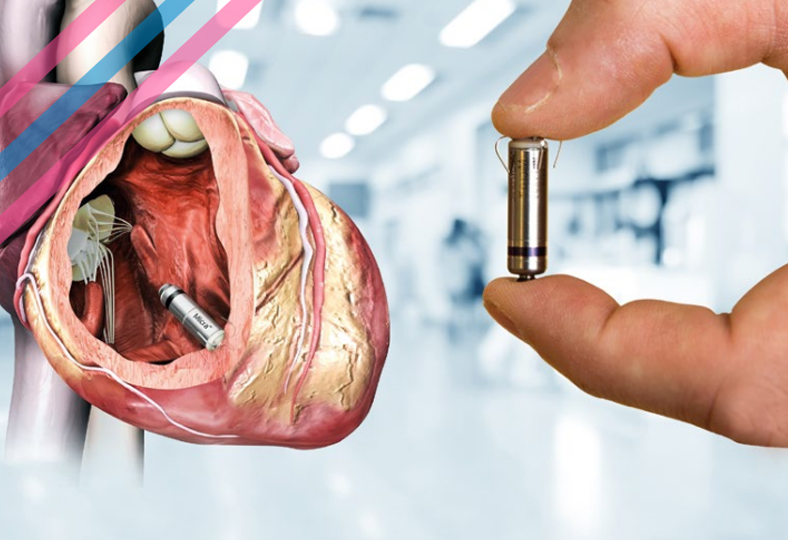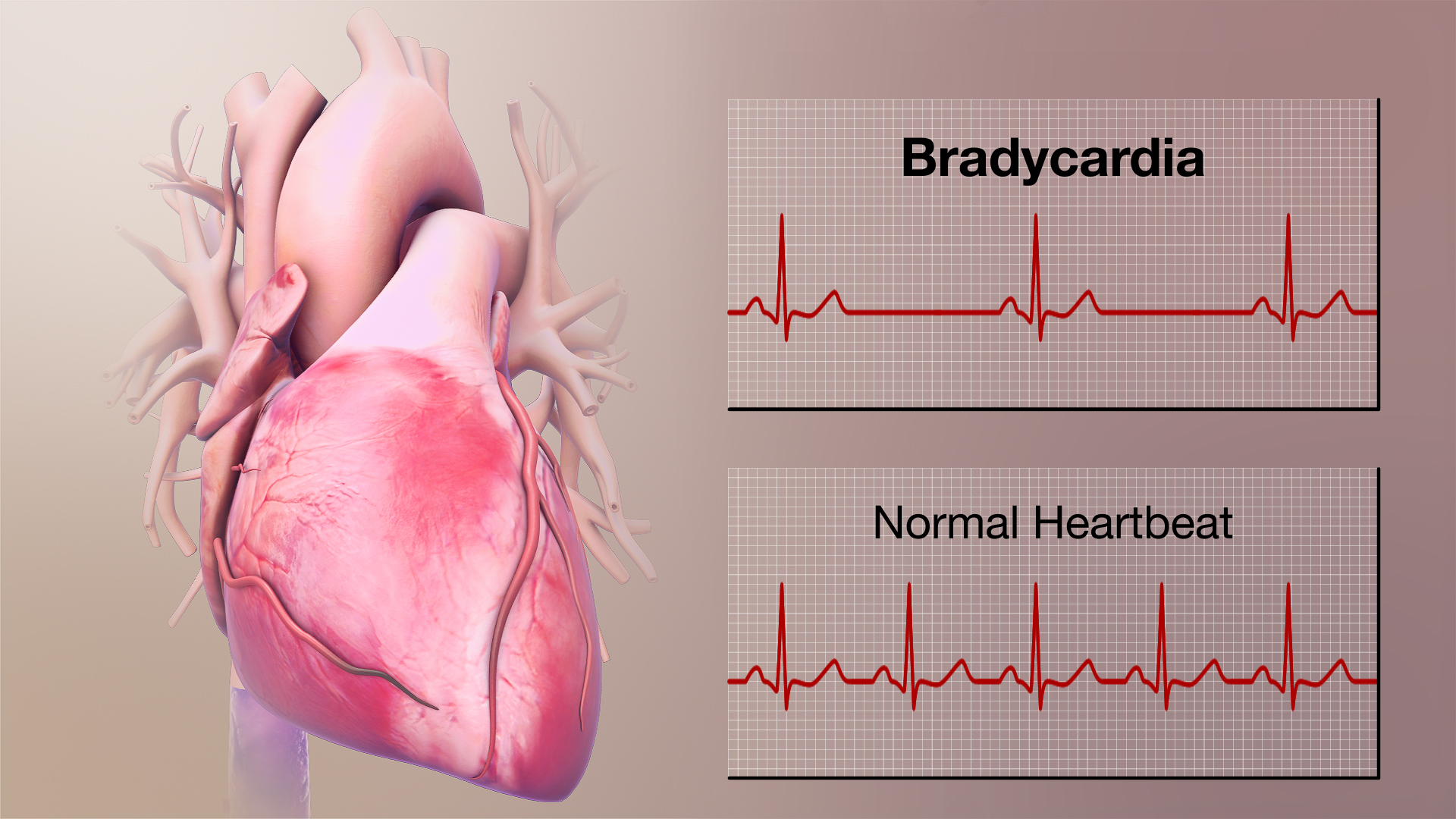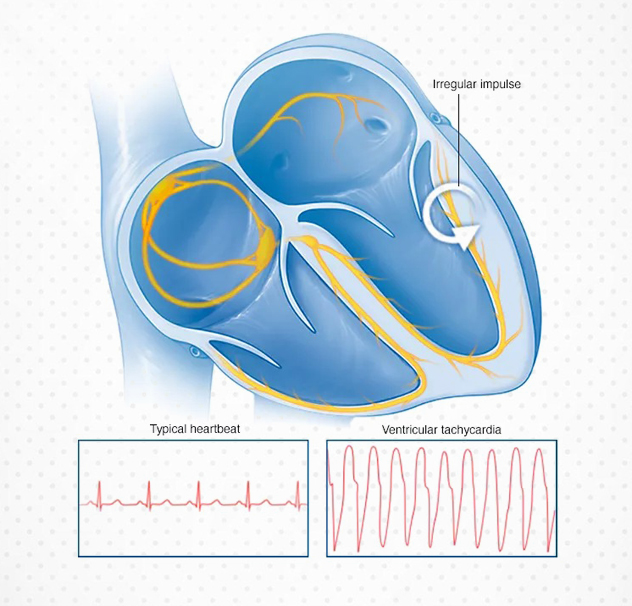

2015 is yet another memorable year for MICC and its milestone. MICC became
Kerala’s first ever cardiac centre to successfully implant the world’s smallest
leadless pacemaker, Micra, in patients. A pacemaker helps in controlling the
heartbeat which has slowed down. Micra aids in keeping up the frequency.
MICC is the first cardiac centre to implant single chamber micra leadless
pacemaker in Kerala, and dual chamber micra leadless pacemaker in India.
This very step in MICC’s history helped in developing many successful news
stories.
What is bradycardia?
Bradycardia is a condition in which the heart beats too slowly. A healthy heart beats 60 to 100 times per minute, pumping about 284 liters of blood every hour. When you have bradycardia, the heart beats fewer than 60 times per minute. At that rate, the heart may not be able to pump enough oxygen-rich blood to the body during activity or exercise. As a result, you might feel dizzy, tired, short of breath, or have fainting spells.


Diagnosing bradycardia
Only a doctor can determine if you have bradycardia and, if so, how far it has progressed. To rule out or confirm the diagnosis of bradycardia, one or several diagnostic tests may be ordered, depending on the suspected heart rhythm problem.
These tests may include:
- Electrocardiogram (ECG)
- Holter or event monitor
- Insertable cardiac monitor
- External loop recorder
- Tilt table test
- Electrophysiology study (EP Study)
- Exercise ECG, or stress test (measures your heart rhythm while you’re engaged in a physical activity)
FAQ
A magnetic resonance imaging (MRI) scan is a type of medical imaging that uses magnetic fields to create an internal view of the body, which doctors use for diagnostic purposes. Micra was designed, tested, and approved to be used safely with MRI scanners. You can undergo an MRI scan as long as patient eligibility requirements are met. Please consult your heart doctor about these eligibility requirements.
Given the short duration of security screening, it is unlikely that Micra will be affected by metal detectors (walk-through archways and handheld wands) and full body imaging scanners (also called millimeter wave scanners and 3D imaging scanners) such as those found in airports, courthouses, and jails. However, the metal case of a pacemaker could set off a metal detector. To minimize the risk of temporary interference with Micra while going through the security screening process, avoid touching metal surfaces around any screening equipment. Do not stop or linger in a walk-through archway; simply walk through the archway at a normal pace. If a handheld wand is used, ask the security operator not to hold it over the pacemaker and not to wave it back and forth over the pacemaker. Requesting a hand search is also an alternative. If you have concerns about these security screening methods, show your Micra ID card, request alternative screening, and then follow the instructions of the security personnel.
Yes. When talking on a mobile phone, keep the phone about 6 inches away from an implanted Micra. We also recommend avoiding placing the mobile phone in a shirt or jacket pocket of the chest.
Yes. Most household appliances are safe to use as long as they are properly maintained and in good working order. This includes microwave ovens, major appliances, electric blankets, and heating pads.
Items that contain magnets, such as magnetic therapy products, stereo speakers, and handheld massagers can temporarily affect the operation of a pacemaker. Therefore, it is recommended to keep items containing magnets at least 6 inches away from an implanted pacemaker. We do not recommend the use of magnetic mattress pads and pillows because it is difficult to maintain a 6-inch distance when using these items
A new Micra is needed when battery power falls to a low level. Battery power is affected by many factors, including the nature of the heart condition. The estimated average battery life for a Micra device is approximately 8–13 years after it is implanted3,4; individual patient experience may vary. The battery power is checked at each Micra follow-up appointment. The doctor or nurse will notify you when you need a new pacemaker. When a new device is needed, the Micra device may be either simply turned off or removed from the body before a new Micra device or traditional pacemaker system is implanted. Your doctor will determine what is best for you
You should be able to return to your usual activities, as long as those activities do not exceed current fitness levels. Questions about specific exercises should be discussed with your physician.

